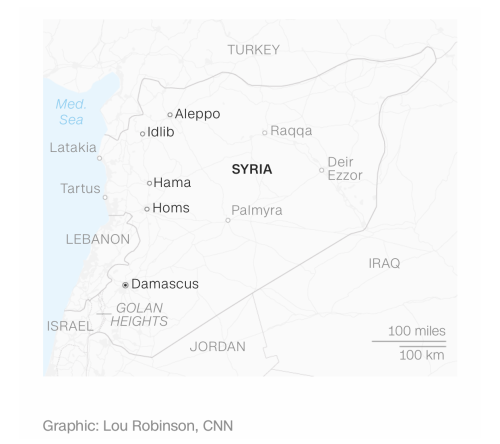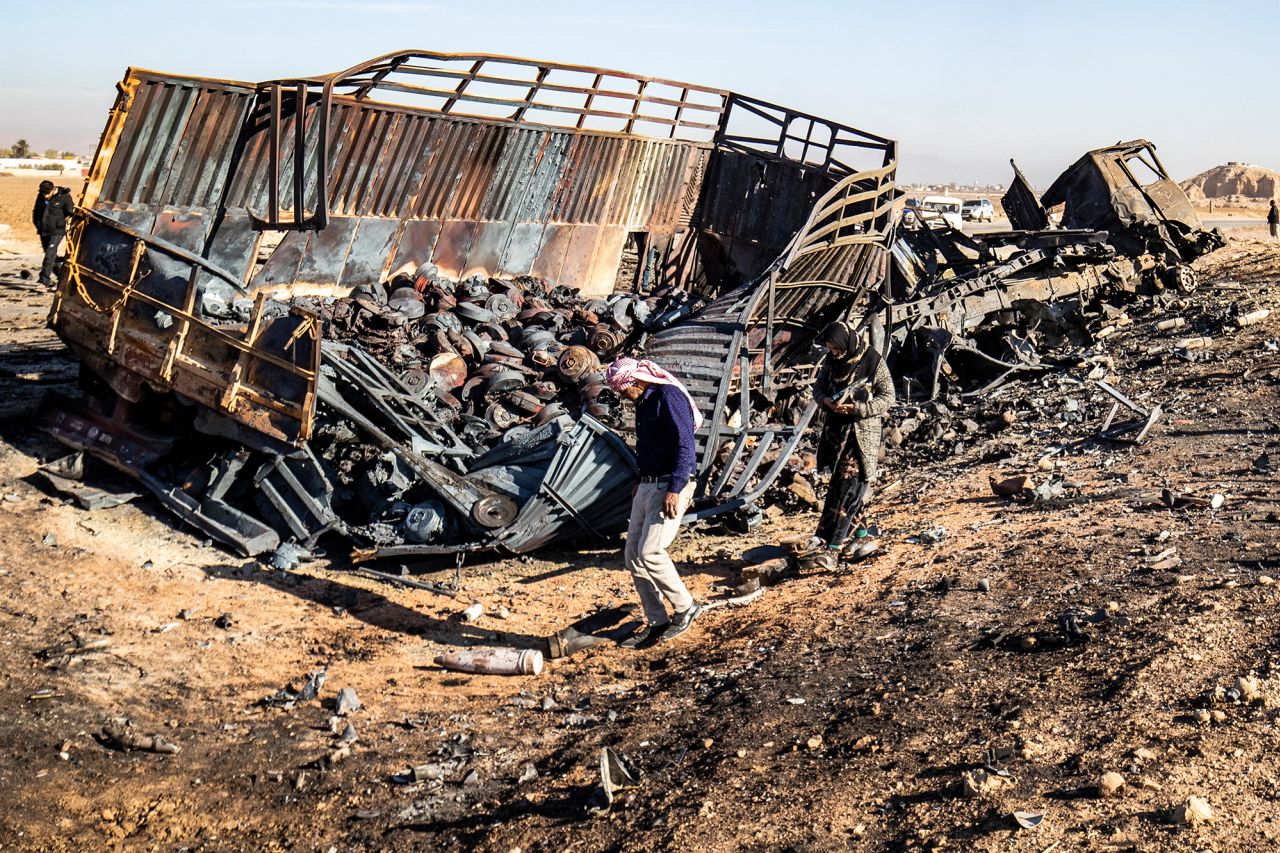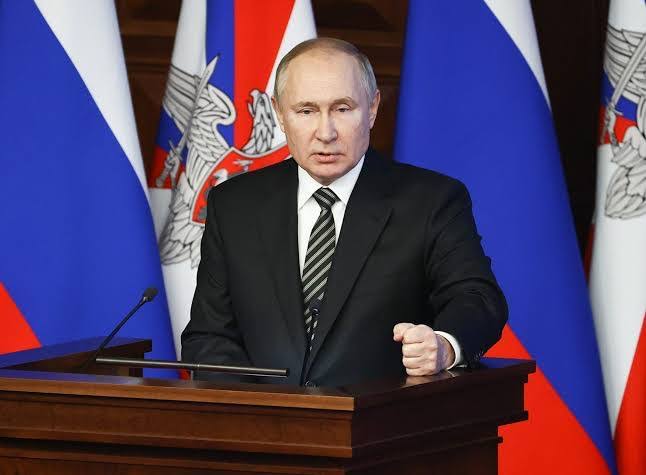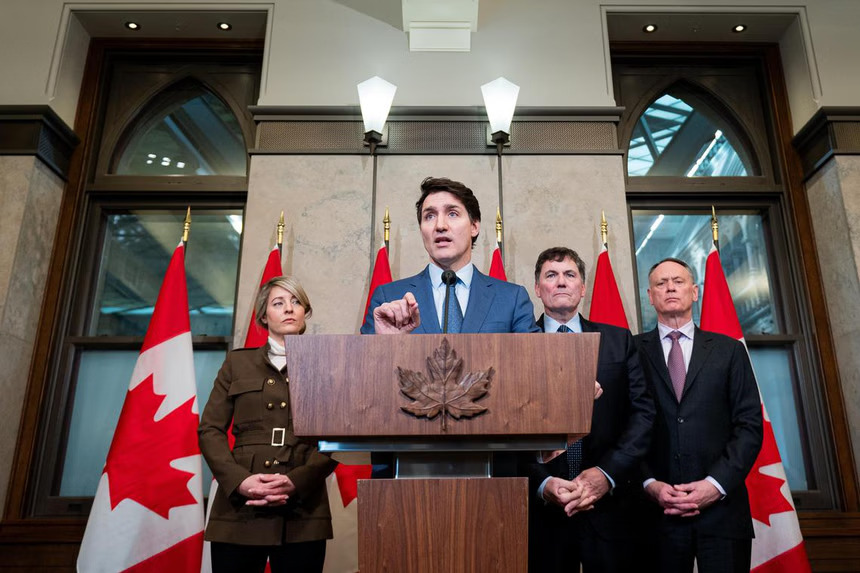Geir O. Pedersen, the United Nations special envoy for Syria, urges Israel to stop its strikes on the country, which is recovering after 50 years under Assad’s rule.
Rebel forces enter Damascus on Sunday, overthrowing President Bashar al-Assad and taking control of Syria. On the same day, Israeli Prime Minister Benjamin Netanyahu announces that he has ordered the military to “take control” of the buffer zone separating the Israeli-occupied Golan Heights from the rest of Syria.
On Monday, Israel says it strikes Syria’s chemical weapons facilities. It also moves troops into the buffer zone and orders the creation of a “security zone” deeper inside Syrian territory.
The United Nations confirms that Israeli troops have entered the buffer zone and are operating in at least three locations, according to UN Secretary-General’s spokesperson Stéphane Dujarric.

The UN’s Disengagement Observer Force (UNDOF) tells Israel that its presence in the Syrian buffer zone violates the 1974 Agreement on Disengagement with Syria, Dujarric states on Monday.
Speaking in Geneva on Tuesday, Pedersen says, “We are continuing to see Israeli movements and bombardments into Syrian territory. This needs to stop. This is extremely important.”
Several Middle Eastern nations, including Saudi Arabia, Turkey, Egypt, Jordan, and Qatar, condemn Israel’s seizure of the buffer zone, accusing it of exploiting the situation to claim more territory.
The Saudi foreign ministry says in a statement that these actions “confirm Israel’s continued violation of the principles of international law and its determination to sabotage Syria’s chances of restoring its security, stability and territorial integrity.”
The Arab League accuses Israel of “taking advantage of the developments in the internal situation in Syria,” while Jordanian Foreign Minister Ayman Safadi calls it “an unacceptable escalation and an attack on the sovereignty of an Arab state.”
Qatar’s foreign ministry describes the move as “a serious escalation,” saying Israel is “imposing realities” through land seizures. Egypt’s foreign ministry says Israel’s actions “impose a new reality on the ground that contravenes international law.”
The Egyptian foreign ministry adds, “Israel’s actions… constitute an exploitation of the state of fluidity and vacuum in Syria to occupy more Syrian territories.”
Geir O. Pedersen, the United Nations special envoy for Syria, urges Israel to stop its strikes on the country, which is recovering after 50 years under Assad’s rule.
Rebel forces enter Damascus on Sunday, overthrowing President Bashar al-Assad and taking control of Syria. On the same day, Israeli Prime Minister Benjamin Netanyahu announces that he has ordered the military to “take control” of the buffer zone separating the Israeli-occupied Golan Heights from the rest of Syria.
On Monday, Israel says it strikes Syria’s chemical weapons facilities. It also moves troops into the buffer zone and orders the creation of a “security zone” deeper inside Syrian territory.
The United Nations confirms that Israeli troops have entered the buffer zone and are operating in at least three locations, according to UN Secretary-General’s spokesperson Stéphane Dujarric.
The UN’s Disengagement Observer Force (UNDOF) tells Israel that its presence in the Syrian buffer zone violates the 1974 Agreement on Disengagement with Syria, Dujarric states on Monday.
Speaking in Geneva on Tuesday, Pedersen says, “We are continuing to see Israeli movements and bombardments into Syrian territory. This needs to stop. This is extremely important.”
Several Middle Eastern nations, including Saudi Arabia, Turkey, Egypt, Jordan, and Qatar, condemn Israel’s seizure of the buffer zone, accusing it of exploiting the situation to claim more territory.
The Saudi foreign ministry says in a statement that these actions “confirm Israel’s continued violation of the principles of international law and its determination to sabotage Syria’s chances of restoring its security, stability and territorial integrity.”
The Arab League accuses Israel of “taking advantage of the developments in the internal situation in Syria,” while Jordanian Foreign Minister Ayman Safadi calls it “an unacceptable escalation and an attack on the sovereignty of an Arab state.”
Qatar’s foreign ministry describes the move as “a serious escalation,” saying Israel is “imposing realities” through land seizures. Egypt’s foreign ministry says Israel’s actions “impose a new reality on the ground that contravenes international law.”
The Egyptian foreign ministry adds, “Israel’s actions… constitute an exploitation of the state of fluidity and vacuum in Syria to occupy more Syrian territories.”



